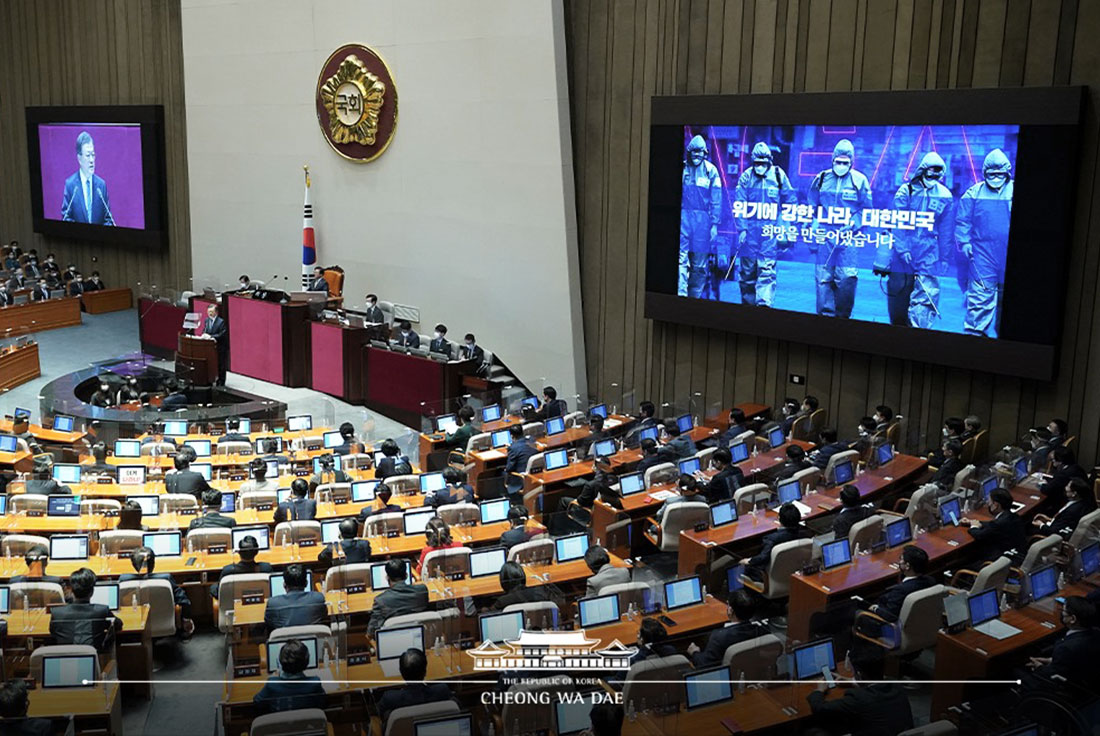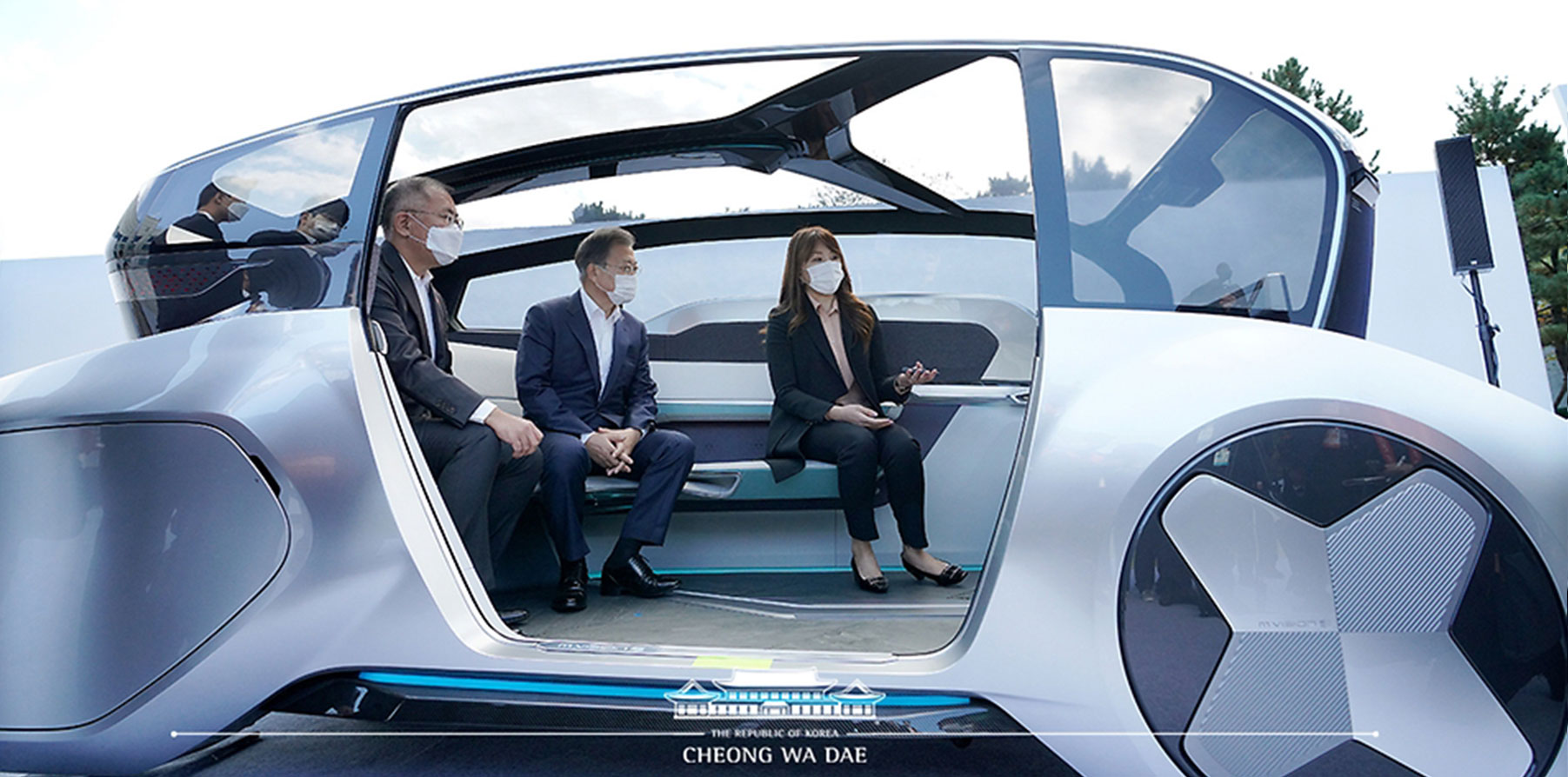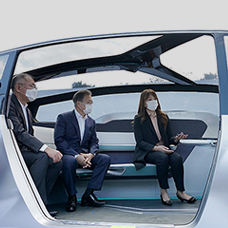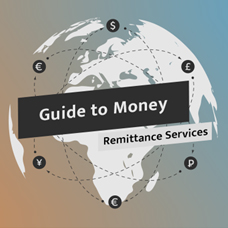Current Korea
Net Zero by 2050
President Moon Jae-in has pledged to make Korea’s carbon footprint “net zero” by 2050. Making this declaration on Oct. 28 to the National Assembly, he drew worldwide acclaim by setting a concrete agenda to help alleviate climate change and save the environment.
Written by• Sohn Ji-ae
Photo courtesy of• Cheong Wa Dae
President Moon Jae-in has pledged efforts to make Korea “carbon neutral” by 2050, part of the eco-friendly campaign his administration has consistently pushed for and exemplifying Korea’s aggressive push to deal with climate change and environmental conservation.
Global Campaign
In 1997, 84 world leaders adopted the Kyoto Protocol, an international treaty aimed at reducing CO2 emissions. Yet a number of signatories withdrew from the deal for political reasons or because they fell well behind their targets.
Calls for action mounted as climate change continued to wreak havoc around the world. In response, many nations began to declare the intent to achieve carbon neutrality to keep the planet sustainable and tackle climate change.
In September last year, 65 governments declared carbon neutrality at the United Nations Climate Action Summit and five more did so this year. The European Union last year also set targets for 2050 to that end through the European Green Deal. And this year, China announced that it would go carbon neutral by 2060 and Japan pledged to do so by 2050.
With President Moon’s “net zero” declaration, Korea officially joined global efforts to take action against climate crisis by reducing its carbon footprint.
“With this announcement, the Republic of Korea, the world's 11th-largest economy and sixth-largest exporter, joins a growing group of major economies committed to lead by example in building a sustainable, carbon neutral and climate resilient world by 2050,” he said.
The U.N. hailed the president’s announcement, saying in a statement, “This is a very positive step in the right direction after Korea’s exemplary Green New Deal, which was announced in July.”
Before making his pledge, the chief executive unveiled a budget of KRW 42.7 trillion for the Green New Deal, with the project seeking to boost the nation’s capacity to respond to climate change and foster green industries, infrastructure and renewable energy.
The initiative is one of the two pillars of the Korean New Deal, a massive project encompassing economic, environmental and social reforms to expedite economic growth in the post-COVID-19 era.
Under the Green New Deal, President Moon pledged to replace coal-fired power generation with renewable energy over the next decades. In green infrastructure, KRW 2.4 trillion will go toward “green transformation” of urban spaces and infrastructure linked to daily living by replacing public rental complexes and run-down buildings with eco-friendly facilities.
The automotive sector will get more eco-friendly as well. Over the next five years, the number of electric- and hydrogen-powered vehicles will be expanded to 116,000 and more stations to either refuel or rapidly charge such cars will be added.
In a Nov. 3 Cabinet meeting, the president said, “We should actively join this global trend as a responsible member of the international community. Responding to the climate crisis is not an option but a must.”

President Moon Jae-in on Oct. 28 announces his administration's goal of making Korea carbon neutral by 2050 in a speech to the National Assembly in Seoul.
Worldwide Acclaim
President Moon’s pledges to make Korea go green quickly attracted a stream of positive media coverage worldwide.
Major media outlets ran stories such as “South Korea follows Japan and China in carbon neutral pledge (Financial Times of London)”; “South Korea vows to go carbon neutral by 2050 to fight climate emergency (The Guardian)”; and “President Moon’s pledges to replace carbon development with renewable energy to create new market, industry and jobs hailed by environmental activists (Frankfurter Allgemeine Zeitung of Germany).”
The Nov. 11 Guardian article titled “Climate heroes: the countries pioneering a green future” said, “A new generation of campaigners believe South Korea has turned a new page.”
In addition, Bloomberg and Forbes quoted Rebecca Mikula-Wright, executive director of the Hong Kong-based Asia Investor Group on Climate Change, as saying President Moon’s pledge will be “welcomed by investors who increasingly want to deploy private capital into markets that are reducing climate risk and enhancing opportunities for clean technology deployment.”
“The three largest economies [Korea, China and Japan] in East Asia now have clear commitments to net zero emissions by or near mid-century. This is a powerful market signal that should help encourage other Asian nations to follow suit and send a strong message to carbon-intensive trade partners further afield that the region is moving to decarbonize,” she said.



















